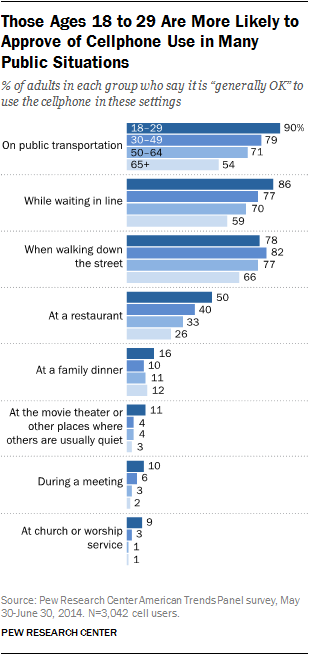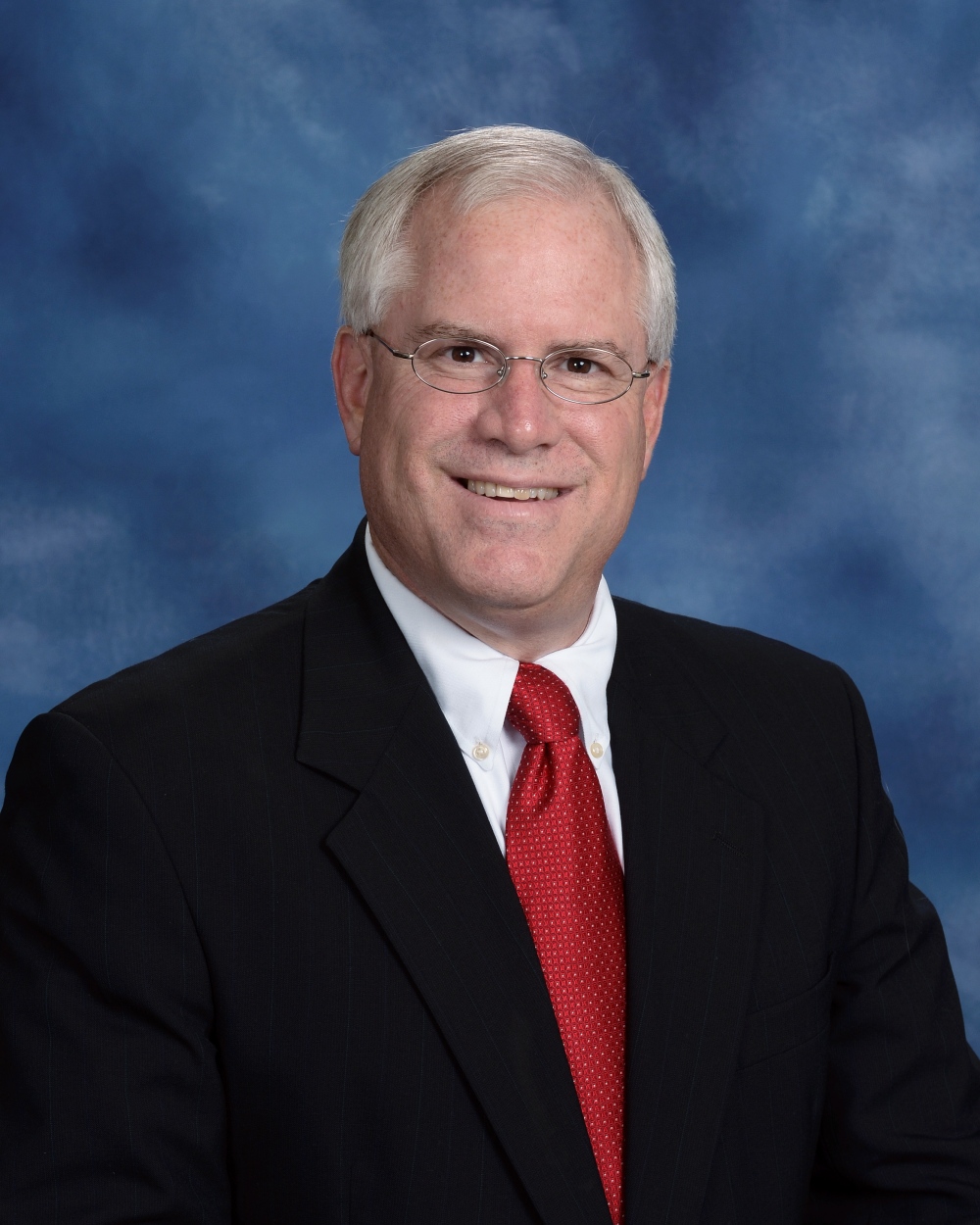By Jeff Brumley
Young adults, known for using cellphones in just about every public setting imaginable, frown on the practice during worship services, a recent survey has found.
The Aug. 25 Pew Research Center study found that only 9 percent of adults 18 to 29 years old said it’s “generally OK” to use cellphones at church or in worship services.
Find that hard to believe?
Well, don’t, say some pastors and other religious leaders.
In Colorado, Bob Ballance said cellphone use at his church — where 20 percent of regular worshipers are Millennials — is rare.

“When I do see someone using the phone, it’s usually someone my age [mid-50s], who’s checked out making a grocery list,” said Ballance, senior minister at Pine Street Church, an American Baptist congregation in Boulder, Colo.
Whether it’s about young people or old, few clergy contacted by Baptist News Global reported any issues with cellphone or other gadget usage in church. In emails to BNG, Cooperative Baptist state coordinators in Florida, Georgia, North Carolina and South Carolina cited few if any complaints about smartphones from pastors.

In fact, some said church-led efforts to encourage worship-centered use of smartphones and tablets had little success.
“I have used an iPhone to read Scripture from in worship — and on purpose — in hopes of getting people to do that, and it never worked,” Ballance said.
Pushing social media
Efforts to get worshipers to post their location on Facebook during services also never caught on at Pine Street, he said.
Jay Kieve, the coordinator of CBF South Carolina, shared a similar experience.
“Early in the phone-tech revolution, when I noticed that people were bringing their web-enabled phones to church, I put a QR code in the order of worship that linked to the scripture passages, artwork, more info through Wiki and other interesting things,” Kieve said via email.

He was the pastor of CrossCreek Baptist Church in Pelham, Ala., at the time.
But it didn’t take, he said, probably because it was too early in the smartphone boom. But Kieve said he would try it again now, especially by inviting people to live Tweet sermon quotes and the like.
“More and more, if something doesn’t appear in a social media stream it is as if it hasn’t happened,” he said.
Staying focused
No doubt many preachers and churches have fully embraced social media. Everyone from Rick Warren, Pope Francis and the heads of the Church of Jesus Christ of Latter-day Saints are tweeting and posting to Facebook.
And many innovative megachurches encourage worshipers to use their phones to spread the gospel — and that morning’s sermon topic – to social media.
But there are many, including a lot of 20somethings, who shy away from those settings — and George Miyata is one of them.
The last thing Miyata, 27, said he wants when Ballance is preaching at Pine Street Church is to be distracted by his phone. And that’s even if he’s just using it to follow along on a Bible app.
“To really hear the sermon, I want my attention to be just on that,” he said.
Miayata works the sound and lighting at the church, so adding cellphone use would be even more distracting. But Miayata said he avoided using his cellphone for reading Scripture or taking sermon notes at other churches because of the social stigma.
“People would probably say, ‘He’s just texting,’” he said.
But it’s more than that.
Miayata said he and many other young adults shun cellphone use at church because they want their worship experiences to be qualitatively different from the rest of their busy, gadget-driven lives.
“We are always inundated with technology and always on our phones,” Miyata said. “It’s nice to get an hour away from that and get away from our phones.”
Avoiding distraction
But there are other young people who see it differently, and apparently many of them to worship at Riverchase Baptist Church in Birmingham, Ala.
“We see many people, especially some of the younger ones, who are bringing their smartphones to church and accessing the Bible on smartphones,” said Jeff Greer, senior pastor at Riverchase.
Greer said his preference would be for people to bring their own paper Bibles or to use those provided in the pews. But instituting that as church policy would be detrimental to those who prefer using cellphone apps to access scripture.
“I just decided I am not going to try to fight that,” he said. “If that’s the way they have found it easiest to access the Word of God, then I’ll take it.”

Nor has Greer received any complaints about others using smartphones during services.
Where problems do arise is when someone — usually an older member of the congregation — forgets to silence or turn off a phone that rings or beeps during worship, Greer said.
That’s also the biggest problem with cellphones at Pine Street Church, Ballance said.
Since the failed experiment to make phones part of the services, the church now emphasizes worship as a refuge from the busyness of culture, he said. That message has resonated with church members — especially the younger ones.
“It seems like they want to be present and they find that pulling those things out is a distraction,” Ballance said.
